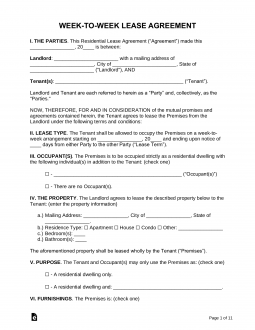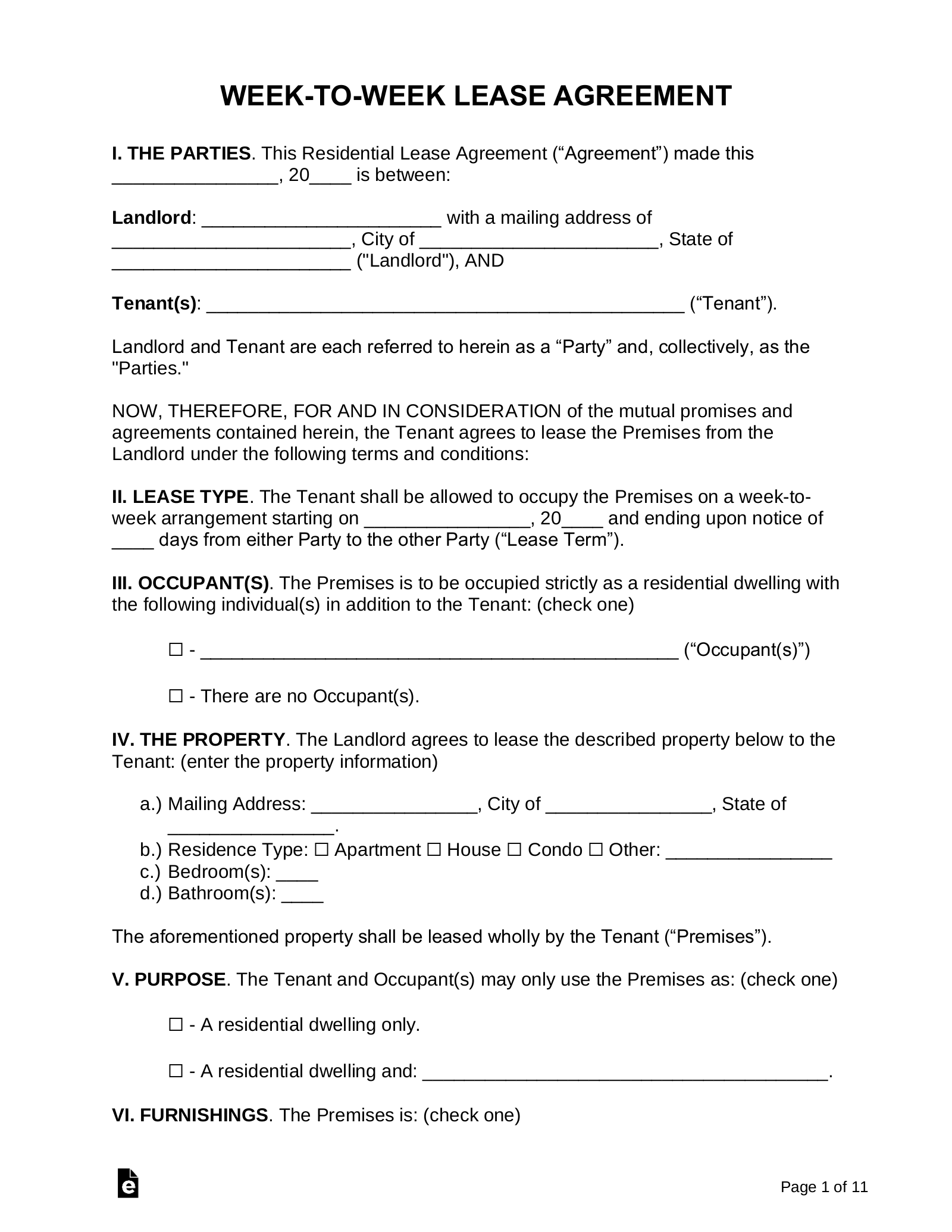Updated April 14, 2023
A week-to-week lease agreement is for a tenant and landlord that commit to seven (7) days for tenancy. Once this type of arrangement has been set up, it may only be canceled by a notice that is written in the agreement or that is legislated by the laws of the state where the property lies.
The landlord is always recommended to require a rental application before accepting any new lessee.
What to Include
- The Premises (location and description of property)
- Term (start and end date)
- Rent
- Security Deposit
- Utilities (ex. electricity, internet, cable TV, etc.)
- Number of Occupants (include names)
- Pets (if allowed)
What is a Weekly Lease?
A weekly lease is a rental contract between a landlord and tenant that can be canceled with 7 days’ notice. It covers your duties and responsibilities as well as the duties and responsibilities of your guests. It will detail everything from the cost of the rental to how many guests are allowed to stay overnight.
Most importantly, a good weekly rental agreement will explain the consequences if your renters fail to keep their part of the bargain. A weekly rental agreement can give you the legal right to terminate a booking and to recover your costs for repairs. Without a weekly rental agreement, you could be stuck with bad renters on your property for the entire length of the booking, or even having to pay them back when you kick them out early.
A weekly rental agreement is the best way to give you the flexibility you need to fairly rent out your property for short-term bookings while also being able to protect your investment in your property.
When to Use
Whenever you are renting out your property to anyone, you should have some type of written agreement in place. If you are renting out the property for a few days, you will want a vacation rental agreement. If you are renting your property on a permanent basis, you will want a month-to-month residential lease agreement.
But, if you are renting your property a week or two at a time you will want a weekly rental agreement. This allows you to extend the booking a week at a time, but it also allows you to end a booking at any time should your renters decide to break the terms of the agreement. Weekly rental agreements should be used even if you are using a third-party website like Airbnb or HomeAway to help you find bookings. Most of these sites encourage you to have your own weekly rental agreement and make it possible for you to get guests to sign your agreement as part of the booking process.
A weekly rental agreement should also be used even if you know your guests. It may seem awkward to have friends or family sign an agreement, but having the expectations in writing is a good way to avoid a misunderstanding.


